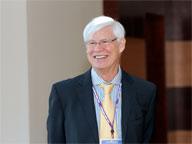Faculty News
—
Prof. Aswath Damodaran on corporate taxation
—

Excerpt from The New York Times -- “'Income is increasingly difficult to nail down,' said Aswath Damodaran, a finance professor at New York University. 'It is like nailing jelly to the wall. And the problem is only going to get worse rather than better.'”
Faculty News
—

Excerpt from The New York Times -- “'Income is increasingly difficult to nail down,' said Aswath Damodaran, a finance professor at New York University. 'It is like nailing jelly to the wall. And the problem is only going to get worse rather than better.'”




















